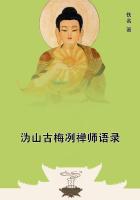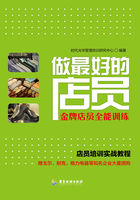"Good gracious, what's that?" cries Volumnia with her little withered scream.
"A rat," says my Lady. "And they have shot him."Enter Mr. Tulkinghorn, followed by Mercuries with lamps and candles.
"No, no," says Sir Leicester, "I think not. My Lady, do you object to the twilight?"On the contrary, my Lady prefers it.
"Volumnia?"
Oh! Nothing is so delicious to Volumnia as to sit and talk in the dark.
"Then take them away," says Sir Leicester. "Tulkinghorn, I beg your pardon. How do you do?"Mr. Tulkinghorn with his usual leisurely ease advances, renders his passing homage to my Lady, shakes Sir Leicester's hand, and subsides into the chair proper to him when he has anything to communicate, on the opposite side of the Baronet's little newspaper-table. Sir Leicester is apprehensive that my Lady, not being very well, will take cold at that open window. My Lady is obliged to him, but would rather sit there for the air. Sir Leicester rises, adjusts her scarf about her, and returns to his seat. Mr. Tulkinghorn in the meanwhile takes a pinch of snuff.
"Now," says Sir Leicester. "How has that contest gone?""Oh, hollow from the beginning. Not a chance. They have brought in both their people. You are beaten out of all reason. Three to one."It is a part of Mr. Tulkinghorn's policy and mastery to have no political opinions; indeed, NO opinions. Therefore he says "you"are beaten, and not "we."
Sir Leicester is majestically wroth. Volumnia never heard of such a thing. 'The debilitated cousin holds that it's sort of thing that's sure tapn slongs votes--giv'n--Mob.
"It's the place, you know," Mr. Tulkinghorn goes on to say in the fast-increasing darkness when there is silence again, "where they wanted to put up Mrs. Rouncewell's son.""A proposal which, as you correctly informed me at the time, he had the becoming taste and perception," observes Sir Leicester, "to decline. I cannot say that I by any means approve of the sentiments expressed by Mr. Rouncewell when he was here for some half-hour in this room, but there was a sense of propriety in his decision which I am glad to acknowledge.""Ha!" says Mr. Tulkinghorn. "It did not prevent him from being very active in this election, though."Sir Leicester is distinctly heard to gasp before speaking. "Did Iunderstand you? Did you say that Mr. Rouncewell had been very active in this election?""Uncommonly active."
"Against--"
"Oh, dear yes, against you. He is a very good speaker. Plain and emphatic. He made a damaging effect, and has great influence. In the business part of the proceedings he carried all before him."It is evident to the whole company, though nobody can see him, that Sir Leicester is staring majestically.
"And he was much assisted," says Mr. Tulkinghorn as a wind-up, "by his son.""By his son, sir?" repeats Sir Leicester with awful politeness.
"By his son."
"The son who wished to marry the young woman in my Lady's service?""That son. He has but one."
"Then upon my honour," says Sir Leicester after a terrific pause during which he has been heard to snort and felt to stare, "then upon my honour, upon my life, upon my reputation and principles, the floodgates of society are burst open, and the waters have--a--obliterated the landmarks of the framework of the cohesion by which things are held together!"General burst of cousinly indignation. Volumnia thinks it is really high time, you know, for somebody in power to step in and do something strong. Debilitated cousin thinks--country's going--Dayvle--steeple-chase pace.
"I beg," says Sir Leicester in a breathless condition, "that we may not comment further on this circumstance. Comment is superfluous.














